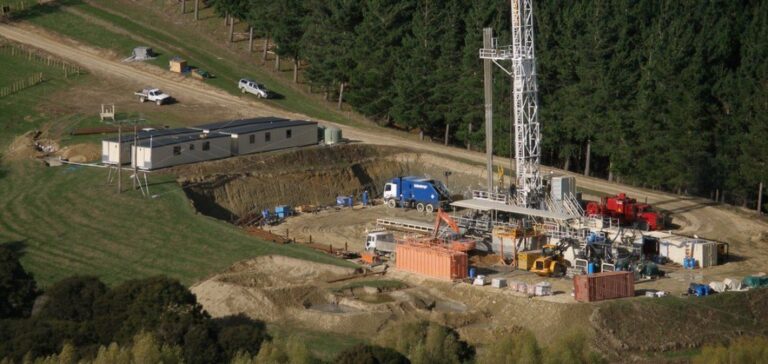The Canadian operator New Zealand Energy Corp. (NZEC) has made a major step forward in the development of the Tariki field in New Zealand. Drilling of the Tariki-5A well revealed sand reservoirs 11 meters higher than expected, confirming the presence of gas and residual condensates. However, the flow analysis showed lower-than-expected rates due to issues with liquid handling on the transport network.
Conversion of the Tariki field into a storage site
In response to the growing demand for gas storage in New Zealand, NZEC is accelerating the conversion of the Tariki field into an underground storage hub. The company plans an injection capacity of 10 to 15 million cubic feet per day (mmscf/d) and an extraction rate of up to 30 mmscf/d. The existing infrastructure allows for rapid deployment, with only adjustments needed to compress the wells.
This project follows the transformation of the nearby Ahuroa field, which was sold in 2017 to Gas Services New Zealand Ltd for 200 million New Zealand dollars (NZD). Since that transaction, gas prices in New Zealand have more than doubled, reaching 14 NZD/mscf in January 2025 and seeing seasonal peaks above 40 NZD/mscf in winter. This volatility highlights the need for additional storage capacity to secure the market supply.
Project dynamics and strategic timelines
To address market tensions, NZEC is accelerating the project’s timeline, with the first phase of storage expected to be operational by Q4 2025. The company is also adjusting its parallel operations, including the recommissioning of oil wells at the Waihapa site and preparing work on the Copper Moki-1 and 2 wells in partnership with Monumental Energy (MNRG). These interventions are expected to contribute to increasing oil and gas production starting in Q2 2025.
As demand for energy flexibility grows in New Zealand, the transformation of the Tariki field into a strategic infrastructure could position NZEC as a key player in gas storage across the Oceania market.






















